This holiday season, you can spread joy by learning to say “Merry Christmas” in a different language.
Wishing a friend a “Merry Christmas” in their native language can give them a piece of home this holiday season. If spending the festive season abroad, learning to say “Merry Christmas” in the language spoken can help spread the holiday spirit.
Christmas is a holiday widely observed around the world but isn’t celebrated the same way. Each culture has their own unique traditions used to mark the occasion.
HERE’S THE CHRISTMAS TOWN WHERE SANTA’S ELVES ANSWER THOUSANDS OF LETTERS
Read on to learn how to say “Merry Christmas” in several different languages, plus how the holiday season is celebrated around the world.
- Spanish
- Portuguese
- French
- Italian
- Icelandic
- Swedish and Norwegian
- Greek
- Croatian
- Polish
- German
1. Spanish
“¡Feliz Navidad!” is how you say “Merry Christmas” in Spanish.
With Spanish as one of the most spoken languages in the world, this is a phrase widely known.
It’s also widely recognized by those who don’t speak Spanish, in large part thanks to the popular song by José Feliciano.
A TRAVEL GUIDE TO SPAIN: VISIT ANY OF THESE LOCATIONS IN THE IBERIAN NATION
Spain has many traditions used to mark the holiday season, including Lotería de Navidad.
The lottery dates back to 1812. Many strengthen their odds for the historic lottery by pooling together their money for tickets.
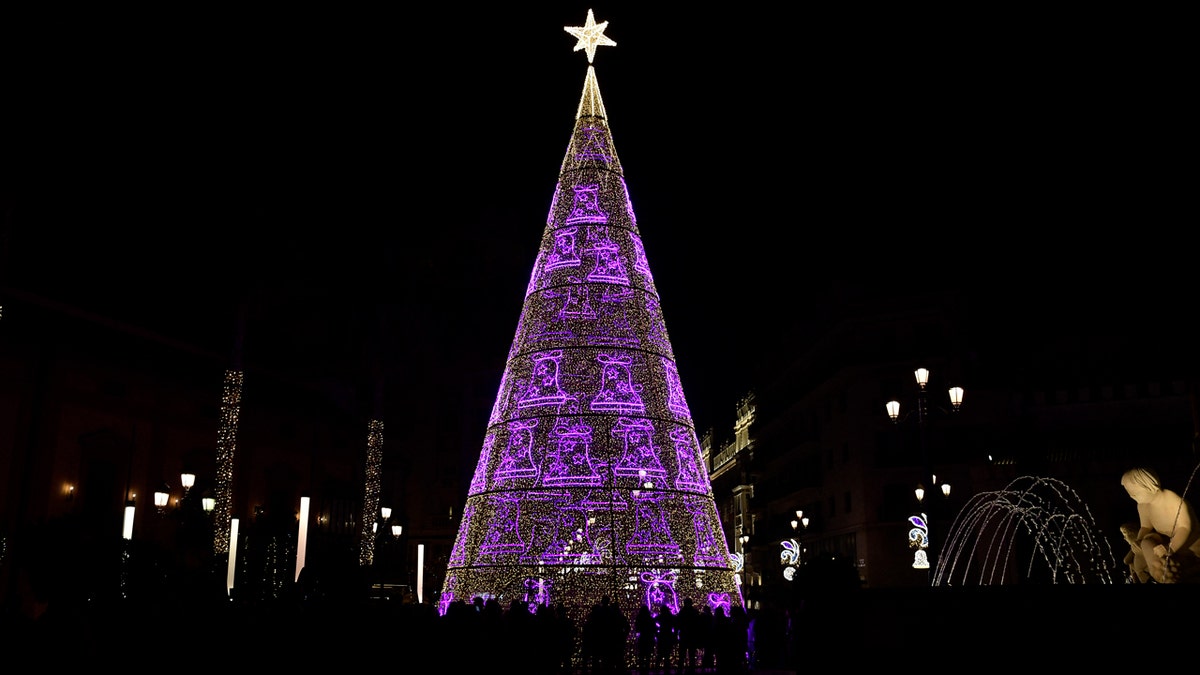
Annually, on Dec. 22, the winning numbers are sung by schoolchildren in a live broadcast.
Nochebuena, a large Christmas Eve feast with family and friends, is another tradition widely observed in Spain.
Lastly, in Spain, instead of awaiting Santa Claus for goodies, children look to Los Reyes Magos (the Three Kings) to bring them treats.
FLIGHT ATTENDANTS REVEAL THE SURPRISING DAY TO TRAVEL AHEAD OF THE CHRISTMAS RUSH
On the night of Jan. 5, parades are held where Los Reyes Magos bring treats to children.
2. Portuguese
In Portuguese, “Feliz Natal!” is how you say “Merry Christmas.”
In Portugal, Christmas Eve is generally when most of the festivities happen, rather than on Christmas Day itself.
On Christmas Eve, loved ones get together for a large dinner with bacalhau, or salted cod, typically taking center stage, according to Portugal.com.
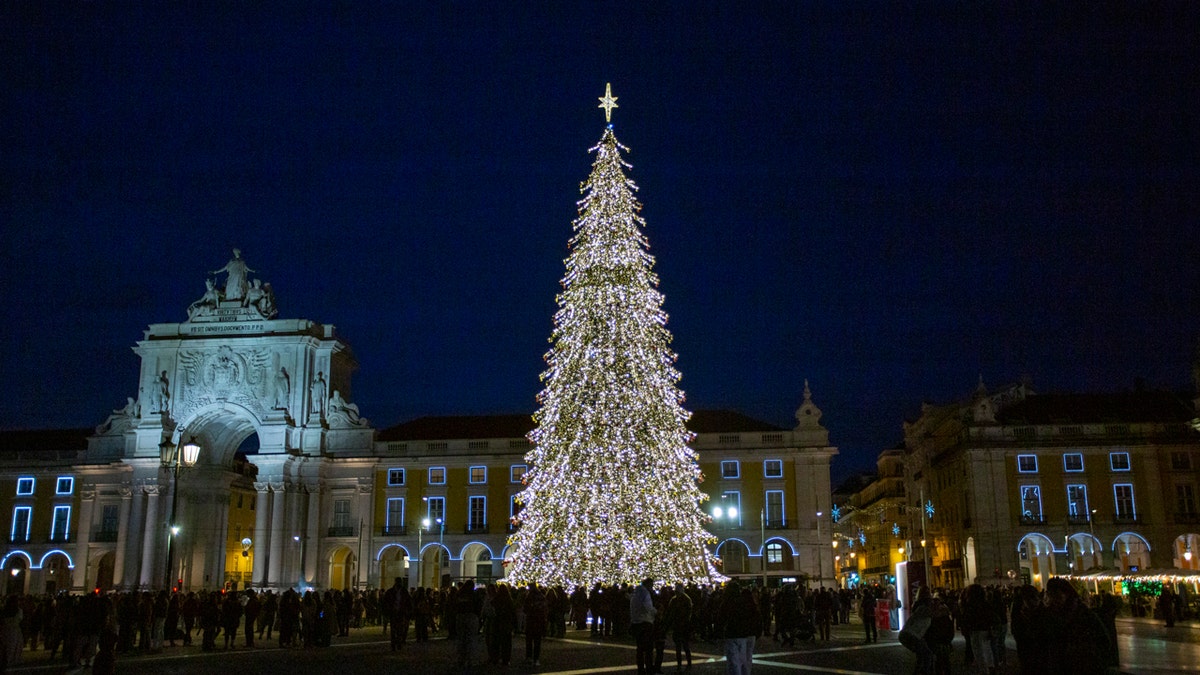
Christmas Eve is also when most families and friends exchange presents with one another.
Additionally, Catholics attend Missa do Galo, midnight Mass, on Christmas Eve.
A PORTUGUESE FOOD GUIDE THAT WILL SEND YOUR TASTE BUDS TO ANOTHER COUNTRY
3. French
If you have any French friends, you can impress this holiday season by saying “Joyeux Noël!” which translates to “Merry Christmas.”
As for Christmas traditions in France, Advent calendars are popularly given to children leading up to the holiday.
Children of France eagerly await the arrival of Père Noël” (Father Christmas) on Christmas Eve.
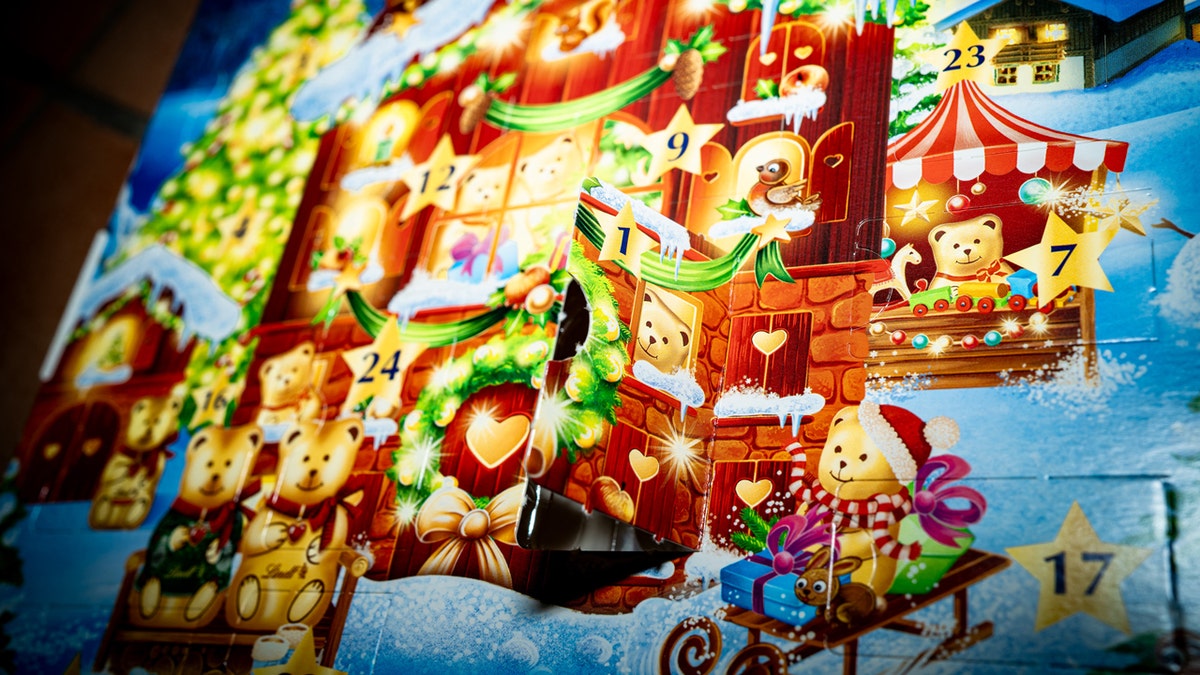
On Christmas Eve, loved ones often get together for a large feast called Le Réveillon.
TRAVELING TO PARIS? HERE’S WHAT YOU NEED TO KNOW ABOUT GOING TO THE ‘CITY OF LOVE’
Midnight Mass is another widely observed tradition in France, with Nativity scenes also in abundance.
4. Italian
“Buon Natale!” is how you say “Merry Christmas” in Italian.
Throughout the holiday season, there are many Christmas markets set up in Italy to buy unique gifts for loved ones.
In Vatican City, many religious services are held, including a midnight Mass.
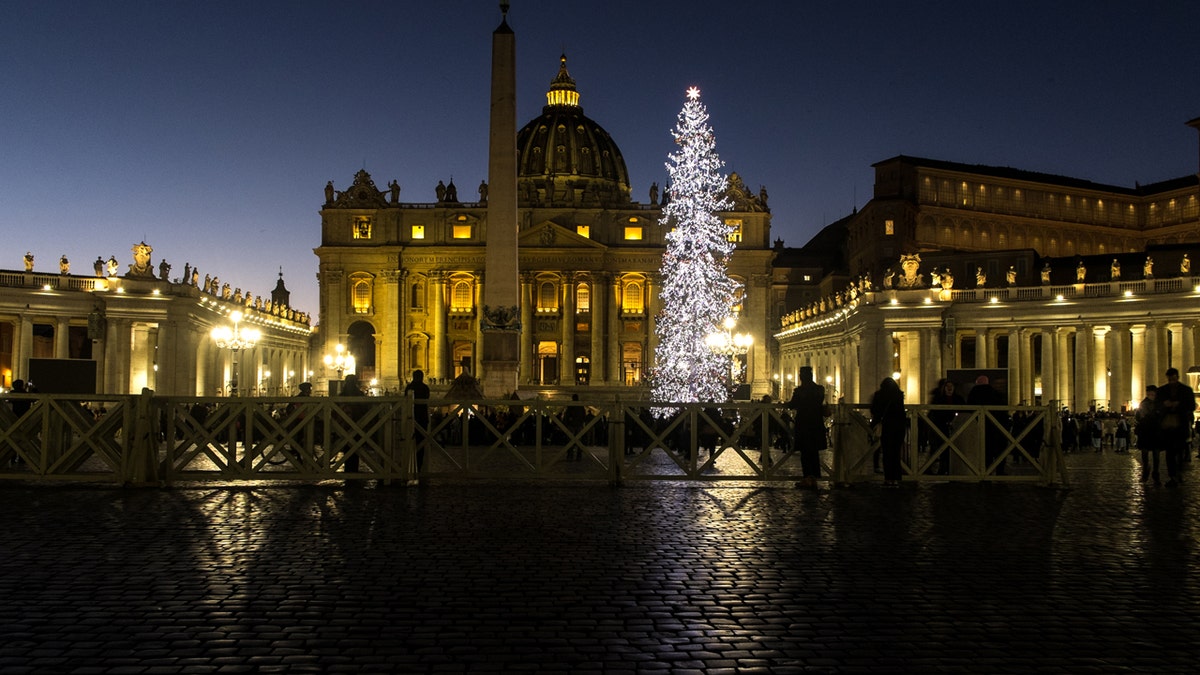
The holiday spirit extends into the New Year in Italy, officially ending on Jan. 6, known as Epiphany.
On the eve of this day, children often receive presents from La Befana, according to the website See Italy. According to Italian tradition, the “good witch” rides on a broom and delivers gifts to children before Epiphany.
A GUIDE TO SIGHTSEEING IN ITALY: A ROMAN ADVENTURE AWAITS YOU
5. Icelandic
In Icelandic, “Gleðileg Jól!” is how you say “Merry Christmas.”
If you’ve been dreaming of a white Christmas, a holiday spent in Iceland is almost guaranteed to satisfy your wishes.
Not only is Iceland snowy, it often displays a bright night sky during the Christmas season, with the northern lights often visible during that time.
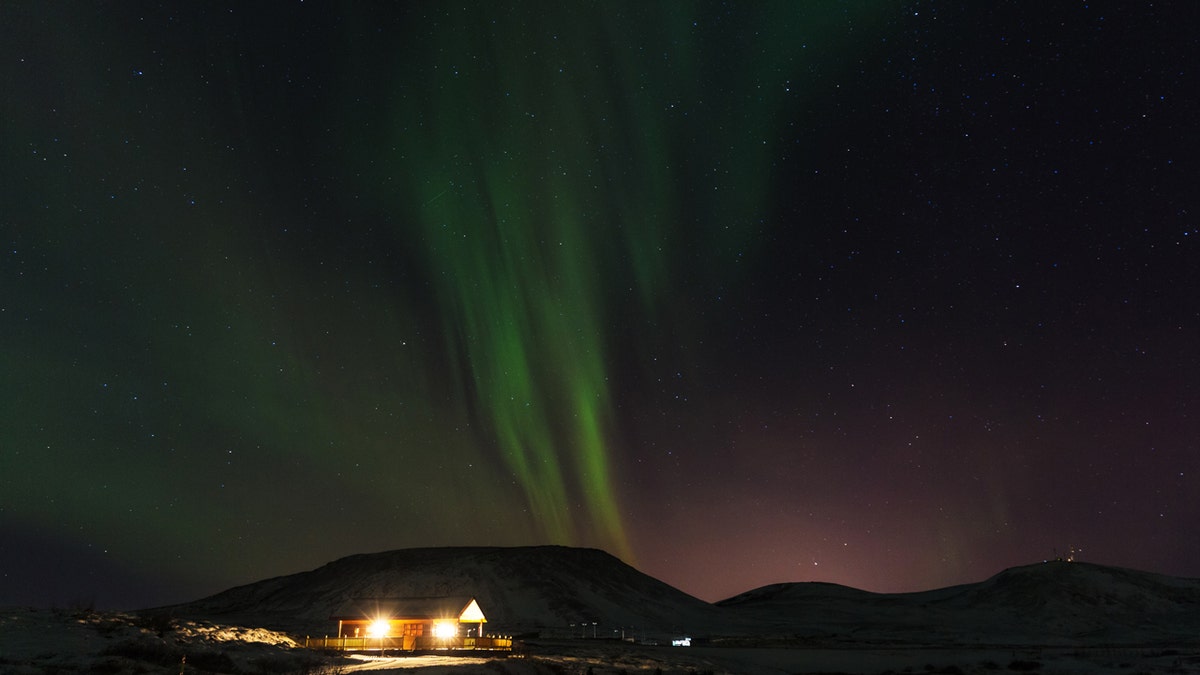
Christmas in Iceland is spent with family, food and giving gifts.
The holiday is celebrated for 26 days in Iceland, according to the Guide to Iceland website, from Dec. 11 to Jan. 6.
In Iceland, there are 13 Santa Clauses, often referred to as Yule Lads, who deliver gifts to children in the 13 days leading up to Christmas, according to the source.
CATCH THE NORTHERN LIGHTS IN THE US AND AROUND THE WORLD WITH THESE VIEWING TIPS
Iceland also recognizes Boxing Day on Dec. 26, which is often thought of as “the second day of Christmas,” according to the Reykjavík Excursions website.
While the day is not as formal as Christmas, it is a time often used to see family and friends that didn’t get together on Christmas Day, per the source.
6. Swedish and Norwegian
In both Swedish and Norwegian, “God Jul!” translates to “Merry Christmas.”
Part of Swedish celebrations is Saint Lucia’s Day, the day that marks the winter solstice, celebrated on Dec. 13, according to the Visit Sweden website.
Like many other cultures, Christmas Eve is typically the main event centered around the buffet-style feast called Julbord, according to the source.
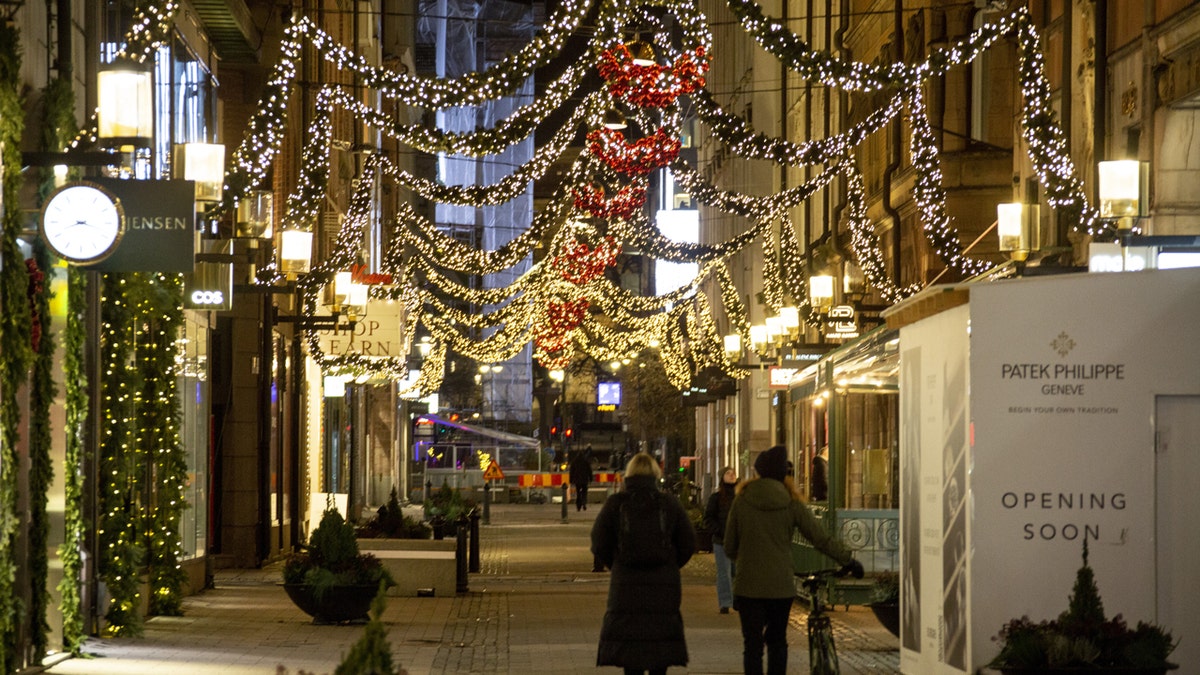
Santa, or Jultomten in Sweden, is a bit less mysterious to children in the country as he hands out presents in person rather than while they are asleep, according to the Visit Sweden website.
Similar to Sweden, Norway’s Christmas traditions include a Christmas Eve dinner, where ribbe, pork ribs or pork belly is often served, according to Oslo.com.
9 AUTHENTIC SWEDISH FOOD DISHES TO TRY, FROM COMFORT FOODS TO SWEET DESSERTS
7. Greek
In Greek, “Καλά Χριστούγεννα! (Kalá Christoúgenna!)” translates to “Merry Christmas.”
Greece holds many unique holiday traditions, including the decoration of boats, according to the Greek Reporter, although the decoration of trees has also become a widely accepted tradition in many households.
In Greece, many children take part in the singing of carols during the holiday season.
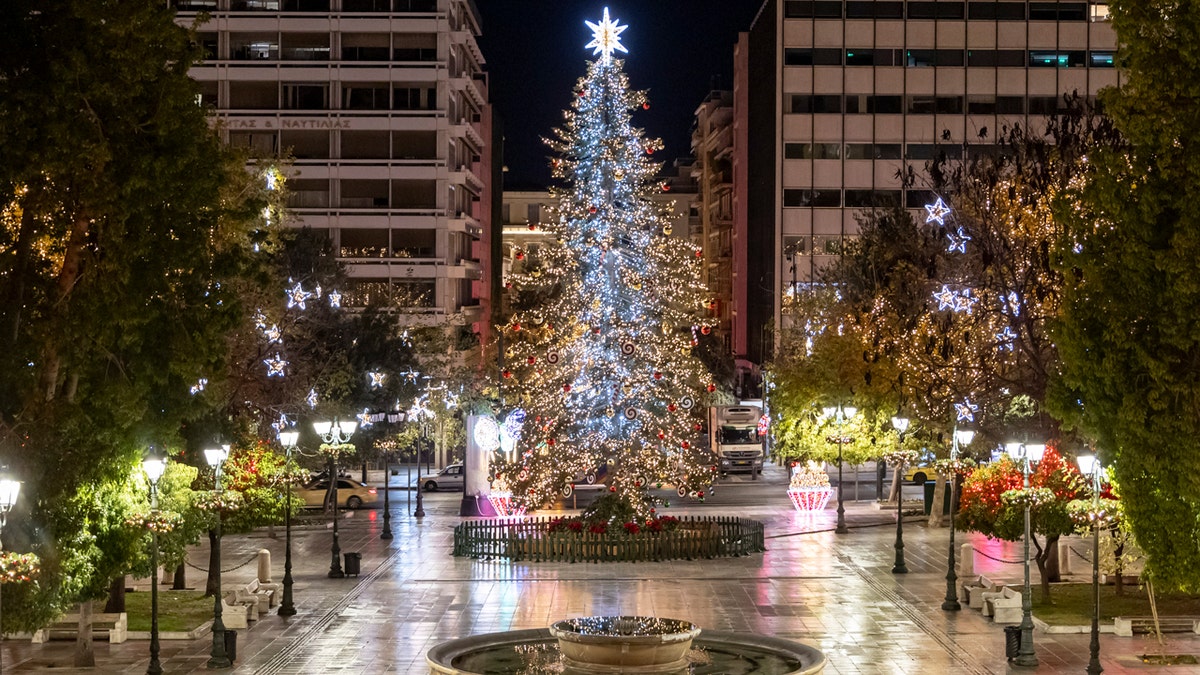
Additionally, it’s typical not to exchange gifts in Greece until St. Basil Day on Jan. 1, according to The Simple Greek, though it is not uncommon for families to give gifts on Christmas, too, per the source.
8. Croatian
“Sretan Božić!” is how to say “Merry Christmas” in Croatian.
Christmas festivities in Croatia begin several weeks before Dec. 25.
COUNTDOWN TO CHRISTMAS WITH THESE FESTIVE HOLIDAY FLICKS
In Croatia, it is common to create an Advent wreath at the start of the season.
Dec. 6 marks St. Nicholas’ Day in Croatia, with St. Lucia’s Day following on Dec. 13.
After Christmas Eve and Christmas, those in Croatia have an additional day to get together with loved ones called St. Stephen’s Day, which takes place on Dec. 26.
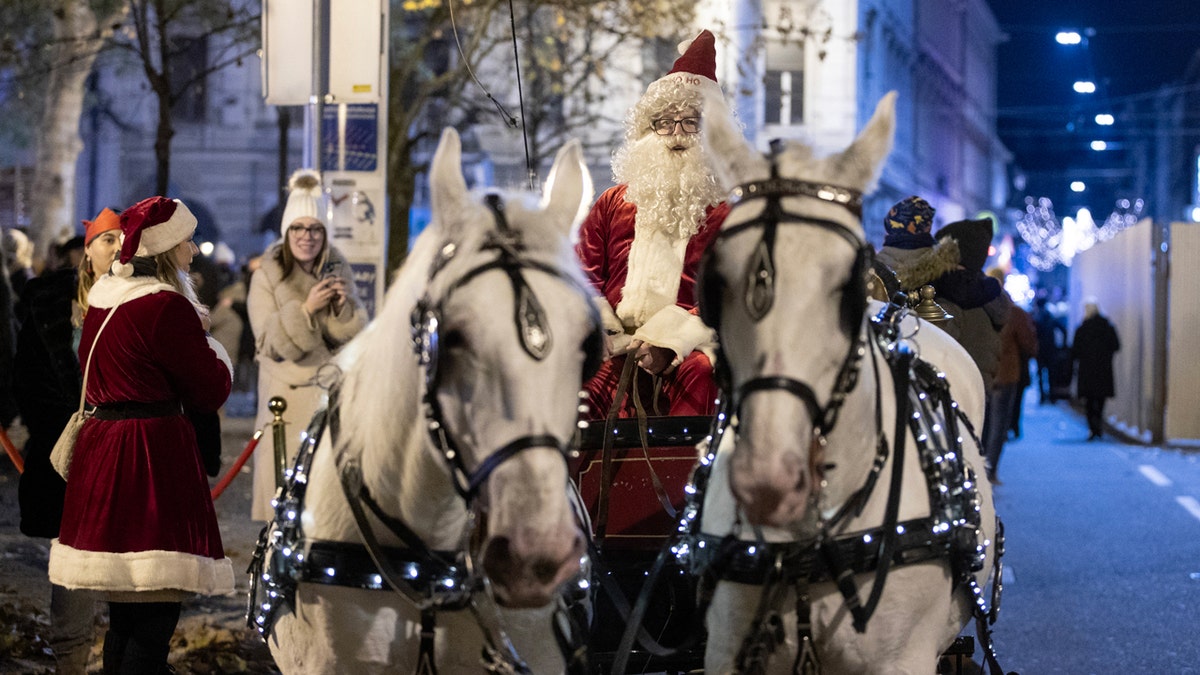
9. Polish
In Polish, “Wesołych Świąt!” means “Merry Christmas.”
In Poland, Wigilia is a Christmas Eve feast.
Families will typically fast leading up to the feast, according to PolishCulture-NYC.org.
THE ULTIMATE CHRISTMAS PLAYLIST: 100 SONGS TO PLAY TO GET YOUR HOLIDAY PARTY STARTED
Also, during this feast, families share opłatek, which is a thin wafer, according to the source.
Carp typically takes center stage at the feast.
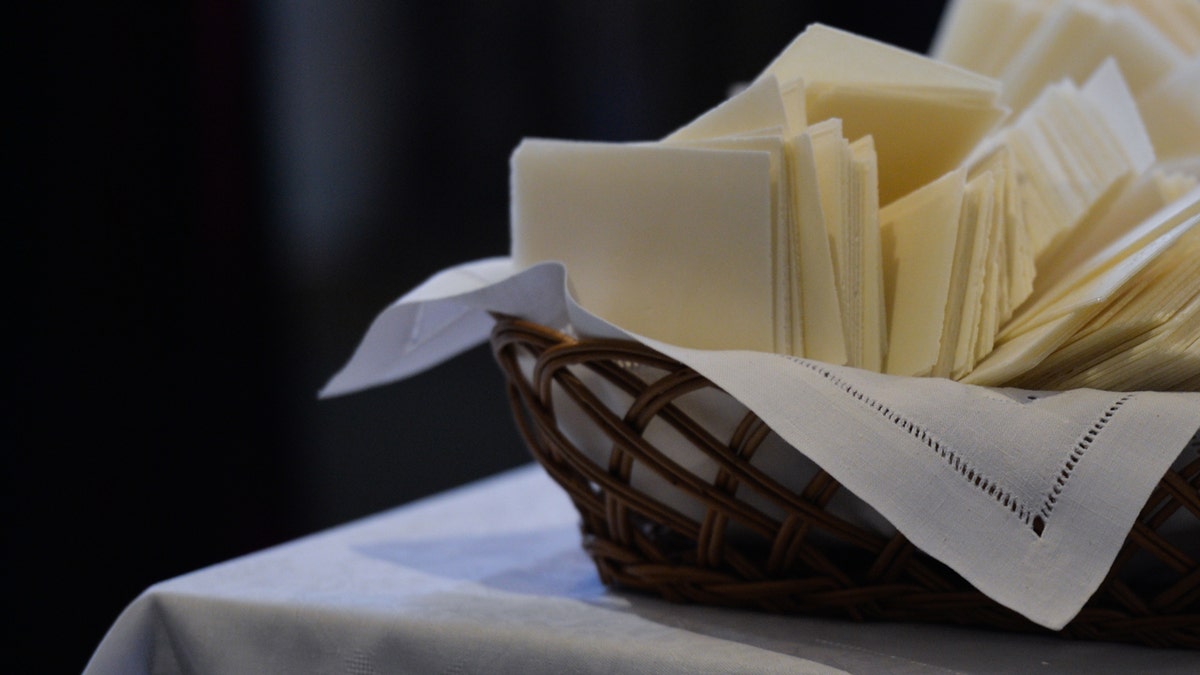
10. German
“Frohe Weihnachten!” means “Merry Christmas” in German.
Even those with no religious affiliation in Germany widely celebrate Christmas.
In 2023, 81% of Germans celebrated the occasion, according to deutschland.de.
In Germany, putting up a Christmas tree and giving gifts are both customary.
In addition, adventskranz, or Advent wreaths, are common in Germany, according to the U.S. Army website.
The wreaths feature four candles symbolizing the four Sundays before the holiday.
Advent calendars are also popular in Germany, which allow children to count down the days until Christmas Eve, per the source.
Another day celebrated in Germany is Dec. 6, which is Saint Nikolaus Day.
On the eve of the day, children typically leave their boots by the door to be filled with gifts from Saint Nikolaus, per the U.S. Army website.
Christmas markets filled with vendors selling trinkets and treats are in abundance during the holiday season in Germany.
Read the full article here


